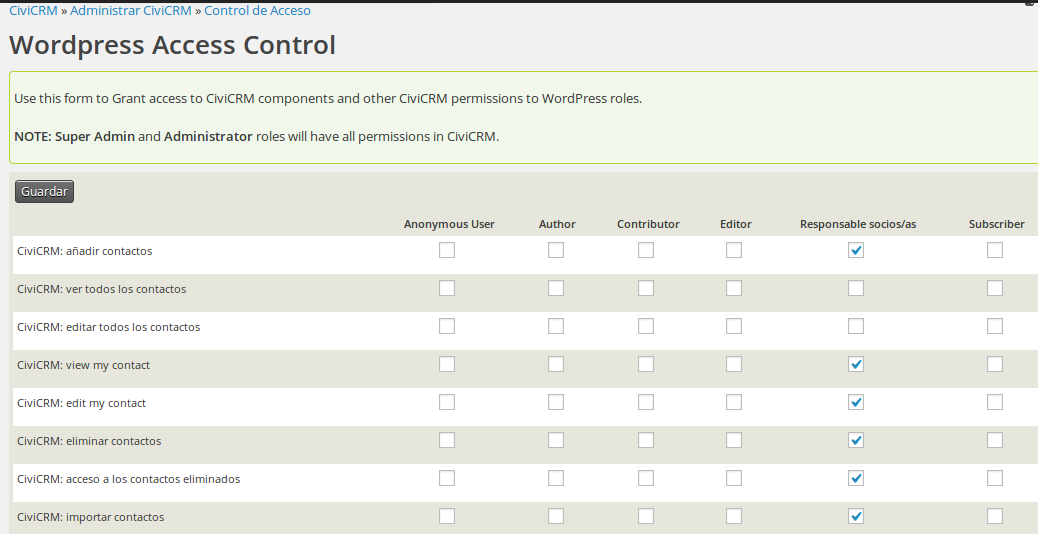176SUDOC IMPROVING PATIENTS MEDICATION ADHERENCE IN CHRONIC DESEASES ČULIG
176sudoc Improving Patients Medication Adherence in Chronic Deseases Čulig
Referentni centar za farnmakoepidemiologiju Ministarstva zdravstva i socijalne skrbi Republike Hrvatske
176su.doc
Improving patients' medication adherence in chronic deseases
Čulig J, Leppée M, Erić M, Bošković J.
Adherence to long-term therapy is defined as the extent to which a patients' behaviour corresponds with agreed recommendations from a health care provider. According to World Health Organization adherence among patients suffering chronic diseases in developed country averages only 50%.
The objective of this study was to investigate the reasons of patient's non-adherence to prescribed therapy in order to identify the ways in which adherence could best be improved by pharmacists.
Patients with diagnosed chronic diseases filled self-reported questionnaire with questions containing information about the reasons for not taking their medication as prescribed, whether pharmacists checked patients' adherence to their therapies, and how often they did it.
This study has involved 171 community pharmacies in the city of Zagreb.
Results from 180 self-reported questionnaries show response rate 33%. There were 16 offered reasons for patients' non-adherence. The most frequently reported reasons were the following: forgetfulness (53%), „ran out of pills“ (40%), away from home (36%), problems with taking pills at specified times (with meals, on empty stomach etc.) (34%), problems with taking more than one medicine at the same time (31%). More than half of the patients (59%) stated that pharmacists always checked whether patients' took their medicines for the first time. 64% of patients thought that pharmacists do not check how often they miss their doses.
By tailoring individual patient medication plan, giving more advice on hoe to deal with complex drug regimen, checking how often patient miss their doses and asking patient to repeat aloud how they should take their medication, pharmacist can increase patient adherence to long term therapy and in the end therapy effectiveness, patient safety, quality of patient life and rationalize drug expenditure.
Tags: patients, deseases, 176sudoc, adherence, medication, čulig, improving, chronic
- 16 LỜI KHUYÊN KHI GIẢNG DẠY BỘ MÔN TOÁN
- AUTOSHAPE 2 THTR 101 – INTRODUCTION TO ACTING FALL—2017—MW
- ALMANYA FEDARAL CUMHURİYETİ İŞADAMLARI HEYETİ KATILIMCILARININ FAALİYET ALANLARI MASA
- SEMINARIO LA NUEVA LEY DE ACOSO SEXUAL Y SU
- SENATE NO 54 STATE OF NEW JERSEY 214TH LEGISLATURE
- LEKCJA W TERENIE – KIELCE – REZERWATY SKALNE TRASA
- ACTS 10 FIRST GENTILE TO HEAR AND BELIEVE THE
- EVALUATION OF ATRAZINE BINDING TO SURFACE SOILS 1HEATHER
- BALASSI BÁLINT (15541594) ▪ RÖVID ÉLETRAJZ SZÜL ZÓLYOM
- THE IDENTITY OF A MAGAZINE SHOULD REFLECT THE PERSONALITY
- Poster Presentation Scoring Rubric Title (6 Pts) (2)
- 244610 USTAWIENIE GŁÓWNEGO MODUŁU (RYS 1) URUCHOMIENIE KOMPUTERA (ALL
- ATTESTATION DU FONDE DE POUVOIR NOM PATRONYMIQUE NOM
- Grad Sisak Poziv za Predlaganje Programa Javnih Potreba u
- ATT DANSA SOM FISKAR I VATTNET TEXT NICOLE MATTSSON
- ERFORDERLICHE DOKUMENTE FÜR DIE AUSSTELLUNG EINES STAATSBÜRGERSCHAFTSNACHWEISES FÜR MINDERJÄHRIGE
- AN ORIGINAL WAY TO MEET PEOPLE RESPUESTAS PROPUESTAS I
- NYA FÖRETAG GER TILLVÄXT SANDRO SCOCCO CHEFSEKONOM PÅ ITPS
- 128 VAN ACHTER S ETUDE DE LA FIABILITÉ
- REAL FEDERACIÓN ESPAÑOLA DE CICLISMO TROFEO NACIONAL JUNIORSUB23 –
- EL INTERÉS SUPERIOR DEL NIÑO VERSUS EL DERECHO A
- ATTITUDES TOWARD MATHEMATICS 7 ME FEMALE MATH
- ALLUSION FIGURE OF SPEECH THAT MAKES A REFERENCE TO
- ETUDE SUR LA RELATION ENTRE LE POIDS ET LA
- WRITING AN EXHIBITION LABEL BRIEF HERE IS A SAMPLE
- CHAPTER 20 PROTEINS TEST BANK TYPE
- E MPLOYMENT OR PROFESSIONAL REFERENCE VERIFICATION THE CANDIDATE
- CUADERNILLO RECUPERACIÓN SEPTIEMBRE LENGUA CASTELLANA Y LITERATURA 2º ESO
- LEYENDAS TABLAS Y FIGURAS TABLA 1 LOCALIDADES VISITADAS EN
- CDIP55 CORR PÁGINA 2 OMPI S CDIP55 CORR ORIGINAL
18 OLDAL SZEGED ÉS TÉRSÉGE TURISZTIKAI NONPROFIT KORLÁTOLT FELELŐSSÉGŰ
 NEW YORK SCIENCE JOURNAL 20125(8) HTTPWWWSCIENCEPUBNETNEWYORK TRAINING AS A
NEW YORK SCIENCE JOURNAL 20125(8) HTTPWWWSCIENCEPUBNETNEWYORK TRAINING AS A FIRST 5 REPORT – APRIL 2020 PAGE 3 OF
FIRST 5 REPORT – APRIL 2020 PAGE 3 OF BIENVENU MABILEMONO LA CUVETTEOUEST 50 ANS DE MÉPRIS ET
BIENVENU MABILEMONO LA CUVETTEOUEST 50 ANS DE MÉPRIS ETSUMMIT TOWNSHIP BOARD MEETING JUNE 11 2019 STUDY SESSION
 AUTHORING TIPS FOR CONVERTING ASSESSMENT CONTENT TO BLACKBOARD COURSE
AUTHORING TIPS FOR CONVERTING ASSESSMENT CONTENT TO BLACKBOARD COURSEQUITO XX DE XX DE XX SEÑOR (A) DIRECTOR
 ANEXO 9 MODELO DE COMUNICACIÓN PARA TOMAR EN CONOCIMIENTO
ANEXO 9 MODELO DE COMUNICACIÓN PARA TOMAR EN CONOCIMIENTOINDICE TEMÁTICO 1 INTRODUCCIÓN 1 11 LOS CALAMARES REBOZADOS
 ANSWER TO Q2 PIPELINING SLICING THE INSTRUCTION EXECUTION
ANSWER TO Q2 PIPELINING SLICING THE INSTRUCTION EXECUTIONFCODFID SHARED SERVICES DELIVERY PLAN 14 NOVEMBER 2006 FROM
 PREFEITURA MUNICIPAL DE SÃO LEOPOLDO ESTADO DO RIO GRANDE
PREFEITURA MUNICIPAL DE SÃO LEOPOLDO ESTADO DO RIO GRANDEOffice of Child Care Licensing Release of Employment History
ALLEGATO 1E) DSAN REQUISITI SOGGETTIVI BANDO PER LA REALIZZAZIONE
 SISTEMA INTEGRADO DE GESTIÓN SIG FSIG026 REV 04 NOMBRE
SISTEMA INTEGRADO DE GESTIÓN SIG FSIG026 REV 04 NOMBRE SUMMARY OF RESULTS CARERS OF EAST LOTHIAN (COEL) CORONAVIRUS
SUMMARY OF RESULTS CARERS OF EAST LOTHIAN (COEL) CORONAVIRUSDEFINITION OF SPONSOR AND COSPONSOR SPONSOR PROPOSES MOTION
GENESIS 11 THE “BABEL” INCIDENT TODAY’S PASSAGE GENESIS 69
SURAT KETERANGAN NO …………………………… YANG BERTANDATANGAN DIBAWAH INI
 FUNCIONALIDADES BÁSICAS CONTROL DE ACCESO 1 INTRODUCCIÓN NO TODO
FUNCIONALIDADES BÁSICAS CONTROL DE ACCESO 1 INTRODUCCIÓN NO TODO